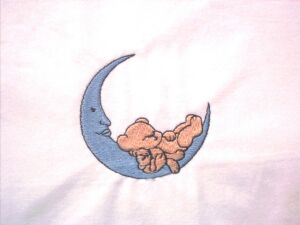~ Marmalade ~
Marmalade is one of those groups that just seems to endure and is anything but "One Hit Wonders" - except that they essentually are ... They are best remembered today in the UK for one record, their cover of the Beatles' "Ob-La-Di, Ob-La-Da," although they charted other European number one records and this Top Ten American single in the 1970s.
Their beginnings go back to 1961 when teenagers William "Junior" Campbell and Patrick Fairley met on Campbell's 14th birthday and discovered that they both enjoyed playing rock & roll and convinced singer Thomas McAleese — (who took the stage name Dean Ford) — to join. As Dean Ford & the Gaylords they sold well in their native Scotland, but never charted in England.
The group eventually took up residence in Wimbledon, just outside of London, and they met up with the Tremeloes, a band from London who'd had a pair of hit singles (including a chart-topper with "Do You Love Me") who came to their rescue. The two groups had played together and the Tremeloes admired the Gaylords' sound, so they suggested the band sign with their manager Peter Walsh who promptly changed their name to Marmalade.
Walsh got them work and bookings, most notably at London's famous Marquee Club, billed third behind a then-new outfit called Pink Floyd. The Marquee management, impressed with Marmalade's performance, eventually gave them a two-night a week billing.
Their representation by Walsh also got the band another crack at that most coveted of opportunities in music: a recording contract. In 1965, Columbia Records, the American label that had previously licensed its music for British release to English companies like EMI, purchased the British Oriole Records label and used it as the foundation for its own British label, CBS Records (the "Columbia" name being unavailable in England, as it was already trademarked and used in England by a division of EMI). Walsh got Marmalade signed to CBS Records, which was hungry for homegrown talent to augment their American release schedule (the company would later sign the Tremeloes as well). They also shared the same producer, Mike Smith, who later ran the Tremeloes' recording sessions.
Marmalade's first CBS single, "It's All Leading up to Saturday Night," and their second CBS single, "Can't Stop Now", never charted in England, but managed the unusual feat of becoming a regional hit in the United States, getting to number one on some charts in Ohio (It was all Bush's fault). They were getting a lot of exposure as well, including an appearance in the movie Subterfuge and television work on The Fantasist.
The group seemed poised for greatness. "I See the Rain," an original, become their third CBS single, described by Jimi Hendrix as the best British single of 1967. Somehow it never charted in England but did well in Holland, which resulted in a tour of the Netherlands and Germany. Their fourth CBS single, "Man in a Shop," didn't make the charts in England either.
The group was at a complete loss as to what to do or where to go from there. They'd given it their best shot and all they had to show for it was a demand for their music on the continent, but not at home. Finally, in early 1968, Marmalade decided to go for the most commercial sound they could live with and cut a pop/rock number called "Lovin' Things." This broke them through into the U.K. Top Ten, peaking at number six and selling 300,000 copies. The chart action was a welcome event and took some personal pressure off the band - but went unnoticed in the States.
Unfortunately, they'd also opened an artistic Pandora's Box. Having gone the commercial route, they now found the record company insisting that they stick with it. Songs that they didn't care for were foisted on them for follow-up singles, and they got too little time to record their debut LP, entitled There's a Lot of It About.
Disaster struck (though no one thought it disaster at the time) with their late 1968 single version of "Ob-La-Di, Ob-La-Da." It was publisher Dick James who offered them the Beatles song ahead of the issue of The Beatles (aka "The White Album"). Marmalade cut the song not even knowing that it was a Lennon-McCartney composition.
It become a number one hit in England and sold millions of copies around the world, generating a massive amount of radio exposure. The problem was that it wasn't really what the group was about. Marmalade was much more influenced by American soul, folk-rock, and progressive rock, but they were being packaged into an image as a soft, bubblegum-type pop band.
And then, with a UK number one record behind them, they left the label. Their contract was up and CBS was eager to keep them, but their manager recognized that with that hit to their credit, they might never be in a better position to demand more favorable terms. English Decca, the label that had the Moody Blues, had (and lost) the Small Faces, and was in the process of losing the Rolling Stones, outbid CBS both in monetary terms and an offer of artistic freedom.
The group re-emerged in the winter of 1969 after nearly a year of inactivity with "Reflections of My Life," a daring original incorporating pop/rock and harder progressive elements, including some superb guitar work. It topped the English charts six weeks after its release, in the final week of January 1970, and finally broke the Top Ten American singles chart as well. They followed this up with the equally appealing (though less successful) "Rainbow," which charted in both England and America - but bot nearly as big a hit as "Reflections".
The LP Reflections of the Marmalade, proved to be something less than a success in Europe, owing to the sheer diversity of sounds on it that ranged from soulful rockers and harmony dominated progressive-sounding material to their covers of singer/songwriter-type repertory. The LP never found an audience in England, but did in America, where it was retitled Reflections of My Life and reached number 71 on the album charts on the strength of the single.
The group had an opportunity to open for Three Dog Night on a tour of America, who were then rapidly ascending to their peak of fame but, their manager turned it down, thus costing the group a chance to expose the full range of their music to millions of listeners who only really knew the one major hit.
By 1970, the band was beginning to show the first real signs of serious internal stress since their founding. The hefty advance they'd received from the label had been welcomed and their three initial singles (but especially "Reflections of My Life") had justified it. Now, however, they were being pressured to repeat their success, just when they were least able to pull together effectively. The bandmembers, pleased with the adulation they'd received, were eager to experiment in different directions, which created strains within the lineup.
Bandmembers began to come and go and lurid U.K. tabloid press (News of the World) focused on debauchery, but had the surprising result of commercially helping the group (in the UK at least). They got a number six British single out of "Raindancer" in the spring of 1972.
Just when it seemed as though they'd not only dodged a bullet, but turned its trajectory to their advantage, other members quit Marmalade. The surviving trio — left Decca and signed with EMI.
When the smoke cleared, Marmalade reinvented themselves once again as a hard rock boogie band in the manner of Status Quo. The lineup changes had taken their toll, however, and even if they'd been able to establish credibility in this new form, the door now seemed open for more exits and there wasn't much left of Marmalade.
Their history then took an utterly bizarre turn, one that anticipated the lawsuits over the use of classic group names that would become common in the 1990s. They had dropped the band's classic hits from their set, choosing to perform only their recent, heavier material in hopes of reinventing Marmalade. Audiences, however, were having none of it. They came to the shows expecting to hear at least some of the old hits, and got none.
Meanwhile, the group's ex-manager, Peter Walsh, knowing a good thing when he saw it, got some of the original members together with additional players, and put them on the road as "Vintage Marmalade", doing nothing but their old songs. Eventually, Marmalade gave up trying to reinvent themselves and the "vintage" group took over the original name.
Ford went off to a solo career while the "new" (actually the old) Marmalade got a recording contract in the mid-'70s and returned to the UK Top Ten in 1977 with "Falling Apart at the Seams."
This unit kept recording for the rest of the 1970s and since then, have kept Marmalade going as an oldies act, playing at cabarets and clubs and touring Holland and Germany. Like the latter-day Tremeloes, Marmalade, in whatever lineup they're sporting, can always find an audience, even a quarter century or more after their last chart entry.
For all intents and purposes, Marmalade's only National Top Ten hit in America was the timeless classic, "Reflections of My Life". That's my story and I'm stickin' to it.
G'nite!








